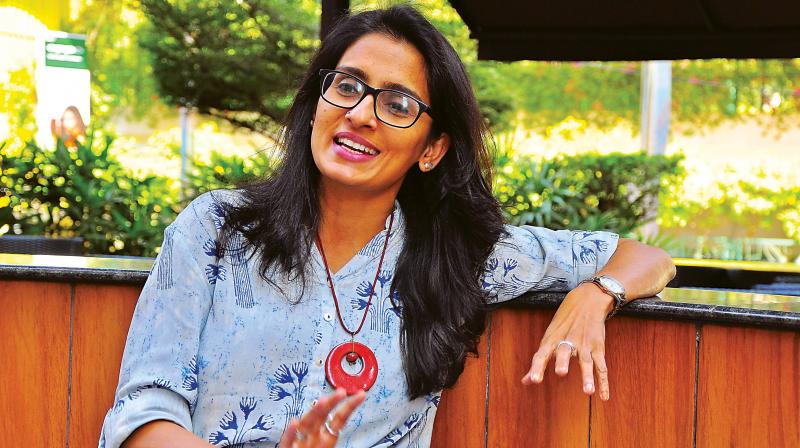Urban legend: Aparna's race' to gender equality

Aparna Viswanathan was in college when she had her first brush with gender discrimination . She nearly dropped out before deciding to face her battles and went on to become college President. During her time as a journalist, she found in her travels to rural India that children there were deprived of many opportunities. That led her to social work - she founded RACE which she headed till tragedy struck in 2005. Unbeaten, she returned with a new concept - Social Intelligence. She talks to Aksheev Thakur about her work with various school boards and the need to bring gender sensitivisation to mainstream education
Aparna Viswanathan welcomes us with a smile on her face – a remarkable feat, considering she has spent her week talking to victims of child abuse and marital rape. The founder of RACE, an organisation that works to bring children out of their comfort zones, Viswanathan had never really witnessed gender discrimination until she joined college. “I found that as a girl, I was expected to behave in a certain way. This left me feeling disgruntled and I left college,” she recalls. This decision didn’t sit well with her parents, who managed to change her mind. Left with no choice, Viswanathan took her battle head on and later became the college President, too.
Hailing from a modest background in Kerala, Viswanathan fell in love with words at a young age and was enormously influenced by Khushwant Singh’s articles in the Illustrated Weekly of India. After college, she found her way into the media, doing a stint as an anchor with a private news channel. It was during this time that she got her first chance to travel to rural India – her Buddha moment, so to speak. As she travelled through the country’s interiors, she found a stark difference between the lives of children here, as opposed to the ones who grew up in larger towns and cities. “The children were being deprived of great potential,” she remarks.
Disillusioned, she made her exit from journalism, venturing instead into social work and RACE was born. In 2005, tragedy struck. Viswanathan’s life was turned upside down when she had a brain haemorrhage. “I lost my memory,” she says. “By the time I recovered enough to rejoin the organisation, the market had changed.”
Then again, life had its own plan for her. “My son fell and injured himself and was taunted for being a girl when he cried,” Viswanathan explains. That’s how she arrived at the concept of Social Intelligence, a term that scarcely heard in those days. “Gender sensitisation can be a huge part of social intelligence and it was something I wanted to do, for it seemed as if nothing had really changed since I was in college,” she says.
In 2015, the National Crime Records Bureau reported that a suicide occurs every one hour among students between the ages of 15 and 29. The reason for this is more or less universal: The inability to cope with academics. The burgeoning issue of suicide paved the way of Viswanathan, helping her hone the concept of Social Intelligence in such a way that students are trained to leave their comfort zones and learn to cope with failure.
“Most of the students we met were unable to cope with failure and they wanted to put an end to their lives. Through workshops in schools, we sensitised the students and also taught teachers the value of letting kids ask questions,” she points out. During these workshops she began to meet children who were victims of abuse. These children were either highly traumatised or oblivious, with very little idea of the difference between a ‘good’ touch and a ‘bad’ touch. As she immersed herself further in the subject, she came across a number of women who were victims of marital rape and had lost all hope of a better future.
Viswanathan made it a point to meet such victims and decided to sensitize them. “Though big schools have counsellors to deal with such issues, there are many institutes that do without. When I meet the children, I have to teach them how to tell the difference between the many ways their bodies can be touched,” she continues.
She says the horrific ordeals of abuses leaves her emotionally drained and it leaves Viswanathan into a trauma for several days. But the determination to equip the women and bring back the children to life continues to drive her.
“While working with Self Help Groups, I can say that the success rate is 80%,” she smiles, adding that the survivors of sexual abuse are still in touch with her and to see them satisfied with life is her greatest reward.
Viswanathan is in talks with the CBSE board to include Social Intelligence in schools. She believes that gender sensitisation, part of Social Intelligence will also help bring down crime rates against minors, as well as in cases of sexual abuse. “I am trying to get the Karnataka government on board too. This should be included in the CBSE curriculum. A huge online signature campaign persists on the inclusion of this beyond academics course.”

